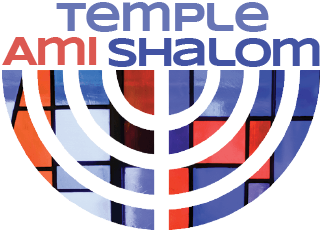havua Tov!! Every week I look forward to sharing my thoughts about this week’s Torah portion, parasha, and other events in our Jewish calendar and life.
This week, we have an interesting event that is rarely if ever observed in our community, Pesah Sheni, the second Passover. Once the Israelites left Egypt, the festival was of Pesah was already a part of our religious tradition. It was an important observance to remember our freedom from Egypt. However, in order to properly offer the Pesah sacrifice, everyone needed to be “pure”. If anyone was considered IMpure in the community, they had to go outside the community and could not celebrate Passover with their family. Some of the Israelites went to Moses and complained that it was unfair that those who were impure could not celebrate their own liberation ceremony. Moses consulted with God and came back with an answer.
The answer was, that all of those who were impure at the regular time of Pesah, could purify themselves and then celebrate Pesah Sheni, the second Passover on the 14th day of the next month, the month of Iyar. This year the 14th of Iyar is this Friday. This is one of two instances in the Torah that Moses is confronted by Israelites who are upset with the law and how it is treating some of the people. I’ll point out the other one in a few weeks when we are going to read the appropriate parasha.
And now to this week’s reading…we only have one parasha this week, Emor. After last week we talked about a wide variety of “differences” between the Israelite community and other communities that they would come into contact with. Some of those same ‘differences’ are still part of our observances today;Kashrut, Shabbat, a mezuzah on our doorways and others.
Today’s reading emphasizes another line of distinction…between the Kohanim, the priests, and the rest of the community. The priests were held to an even higher standard of behavior than the rest of the community. For instance, a Kohen is not permitted to come in physical contact with any dead person, other than a member of their own family. As an example, in our own times, an Orthodox Rabbi cannot perform a taharah, purifying a dead member of the community and preparing them for a funeral. I know of communities where the funeral service is held in the synagogue so that the Rabbi, a kohen, can conduct the service for the family. The casket is not in the synagogue or might be kept in a separate area. Once the service is finished the rest of the family and the community continue to the cemetery for the burial but the Rabbi stays behind because going into the cemetery would make the Rabbi tameh, impure.
There are other restrictions and abstentions that the kohanim must observe. They cannot marry a divorced woman, for instance. They cannot shave any smooth part of their heads nor trim any side growth of their beards.
Emor then continues with a very specific listing of all of the holidays. It begins with Shabbat and reminds us that there is NO work to be done on Shabbat. And it then lists all of the major holidays during the year. The holidays are listed in various ways in all of the last 4 books of the torah and only NOT in Genesis.
We will talk about the last laws in this week’s parasha on Saturday morning during services.
Until then, stay healthy and safe…wear your masks in public and be careful!! Very early Shabbat Shalom and hope to see you in services on Friday night and Saturday morning. Rabbi Ralph
